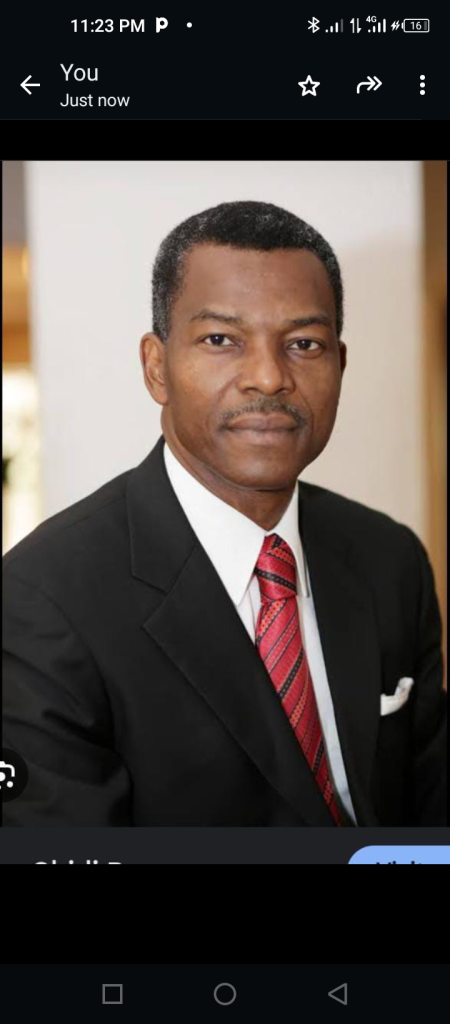
May I clarify from the outset that my submissions during this press conference are solely my perspectives on the recent electricity tariff increase for which I take full responsibility? I speak, therefore, not for the All Progressives Congress but as an entrepreneur with multifaceted interests across varied sectors of the national economy for whom the operations and cost of delivery of electricity supply by the Nigeria Electricity Industry is oppressive and a one-sided monopolistic relationship in relation with customers. I also speak for households across the country that have continued to get the short end of the stick in their relationships with entities in the nation’s electricity industry.
Gentlemen of the Press, we are all aware of the fact that when the old Power Holding Company of Nigeria (PHCN) was unbundled and privatized in 2013, the Nigerian authority was high on the promise of efficiency and cost-effective electricity supply to homes and businesses. Nigerian companies, communities, and individuals were promised a stop to carrying the infrastructure burden and responsibilities of the then PHCN like providing transformers, metres, and sometimes transmission lines. And even more distressful was the arbitrary billing system without recourse to the reading of metres.
That period represented the worst in service delivery by the company so it was with much hope and excitement that Nigerians like me received the privatisation of the sector. But has anything changed? Not at all. More frustrating is that three times after the tariff increase between 2014 and 2022, the larger population, including myself, have continued to moan, and groan, and where we can protest the iniquitous conduct of the 11 power distribution companies (Discos) that directly transmit power to businesses and households. This is because of the permissiveness of the National Electricity Regulatory Commission (NERC) and its apparent incapability to regulate the Nigerian electricity Industry.
Interestingly, the NERC, rather than being a neutral performance driver in the industry, has consistently treated the Generating (Gencos) and Distribution Companies (Discos) as monopolies in clear breach of the law that guides the regulation of the industry. By this condescending approach to managing the relationship between Discos and their respective customers, I have observed, over time, that the major feature of the relationship between the Discos and their customers has been the argument for and justification for a tariff increase. This had persistently been a one-sided conversation with the companies, with the backing of NERC, insisting on cost-reflective tariffs while customers’ insistence on adequate electricity supply was either ignored or fell on deaf ears. This made me continue to wonder about the skewed process of the power industry privatization which was overseen by NERC.
With my many years in business, as it relates to the acquisition of other entities, the grundnorm is the commitment and readiness of the acquiring entity to invest for purposes of equipment acquisition and related operational revamp for optimal service delivery. This is not the case in the Nigerian power sector privatisation where the NERC has continued to spoon-feed the Discos and the generating companies (Gencos) by persuading the federal government to lend and grant them trillions of Naira for sustenance. I ask, what manner of privatisation was that?
May I also submit that since that privatisation, the power companies, in cahoot with NERC have become adept at deploying red herrings in their justification of tariff increase. First, was the categorisation of customers by six different bands based on use and possible hours of supply of power to end users. This speaks to divide and rule maneuver to keep customers from speaking with one voice, when, indeed, none of the categorisation of the customers can be said to be optimally served.
It is based on this categorisation that the recent unjustifiable increase in tariff is being predicated. Early in the month, the National Electricity Regulatory Commission without consultation with customers announced a tariff increase from N66 per kilowatt hour to N255 and declared this would only affect customers on Band A. The question is by what measure or criteria were customers in Band A determined? What is clear is that market segmentation is not done by classifying and banding consumers into groups. It is done by categorising the markets, residential, commercial, and industrial consumers. The consumption of the residential estates is inelastic; it is steady, the commercial bodies’ consumption is relatively elastic, and the industrial consumers’ consumption is very elastic; some run 24/7 to expand production at will. This type of consumer should pay per Kwhr of energy consumed, not the residences. It is the much the state gets from this Band of consumers that enables the residences to be subsidised. The reverse is the case here.
The government cannot exonerate itself from the Bands’ complexity, with state agencies failing to class the society by having residential, commercial, and industrial areas well separated. It is not the responsibility of Nigerians to redesign the network to realities on the ground, and certainly, no Nigerians should pay for lining the pockets of these failures.
The truth must be told, it is not cost reflective tariff that is being paid for by Nigerians rather, it is the cost of inefficiency and investments in the companies of the electricity industry that are being passed on to customers. To redeem this situation, there is a need for NERC to go back to the conditionalities associated with the acquisition of the unbundled entities. The Discos must be made to invest in distribution equipment such that they don’t reject loads delivered to them by the Gencos. We also believe that transformers and meters are essential equipment to their operations, the burden of supplies should not be transferred to end users. The NERC must show seriousness and commitment to making the Discos deliver on their responsibility to their customers.
Nze Chidi Duru, OON, is a serial entrepreneur and the Founder/Chairman, Grand Towers Limited